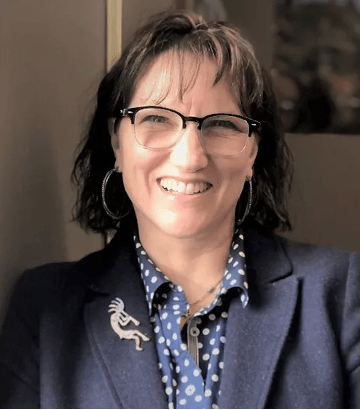Schedule & Speakers
Schedule
| 8:15 AM | Arrival and Check-in at The Arboretum |
| 8:30 AM | Welcoming remarks / housekeeping |
| 8:35 AM | One Health Student Committee (U of G) and Western One Health Club (Western) Introduction and Event Overview |
| 8:40 AM | What is One Health? An Introduction by Dr. Cate Dewey |
| 8:50 AM | Expert Panelist Introductions |
| 9:20 AM | Expert Panel |
| 9:50 AM | Student video perspectives and photo competition presentation |
| 10:00AM | Trivia! |
| 10:10AM | Networking and Coffee Break |
| 10:30AM | Poster Session |
| 11:30AM | 2-minute Presentations |
| 12:30PM | Closing remarks |
Speakers

Cate Dewey
Director | One Health Institute
Associate Vice-President Academic (AVPA)
Professor | Department of Population Medicine
University of Guelph
Cate Dewey, (DVM, MSc, PhD) is a professor of epidemiology and large animal veterinary medicine at the Ontario Veterinary College. Her One Health research focuses on zoonotic disease prevention and vulnerable populations. She is Director of the One Health Institute and Associate Vice-President (Academic), at the University of Guelph.

Stephanie Frisbee
Assistant Professor | Pathology and Laboratory Medicine
Schulich School of Medicine & Dentistry
Western University
Dr. Frisbee completed her BSc at the University of Guelph in Biomedical Sciences, followed by an MSc in Consumer Policy and Affairs with a focus on applied economics. Dr. Frisbee completed an MA in Political Science (American Politics and Policy) and a PhD in Public Policy Analysis, with a specialization in Health Policy, from the West Virginia University. Dr. Frisbee has been a faculty member in the Department of Pathology and Laboratory Medicine. She is deeply invested in educational program development and delivery, serving as a core member of the One Health program and as the creator of the new Clinical and Translational Sciences Graduate Program. Dr. Frisbee’s research program, which has extensive participation with undergraduate trainees, focusses on the determinants of cardiovascular health and disease, working across the translational research spectrum.

Silvia Sarapura-Escobar
Assistant Professor | Rural Planning & Development
School of Environmental Design and Rural Development
University of Guelph
Silvia, an interdisciplinary academic in agri-food systems, is a professor in the School of Environment Design and Rural Development in the University of Guelph. She has more than twenty years of proven experience in the fields of intersectional and gender planning, participatory plant breeding and farmer led research in agri-food systems. As a result of her extensive research engagement in Africa, South East Asia, and Latin America, Silvia built a strong and innovative track record in international rural and agricultural research for development. Until July 2019, Silvia was a Senior Researcher with the Royal Tropical Institute (KIT), Netherlands. She worked with regional partners platforms for the strengthening of agri-food and seed systems in Mozambique; applied agricultural research with CGIAR Centres and CGIAR Research Programs such as CCAFS, RTB and AWARD – the African Women in Agricultural Research and Development. She also collaborated with African public and regional organizations on the Integrated Seed Sector Development (ISSD) Platform- Africa; in climate-smart agriculture and gender planning with Dutch and international organizations. As a Post-Doctoral Fellow with WorldFish, CGIAR, Silvia was part of the Global Scientific Team with the Research Program on Aquatic Agricultural Systems in five countries of Asia, Oceania and Africa. She also led the Gender Capacity Development and Organizational Culture Change Initiative in WorldFish. As an agronomist, she worked with the International Potato Center (CGIAR) in farming systems and farmer-led research in Peru. Silvia’s undergraduate studies in Agronomy were concluded in the Universidad Nacional del Centro del Peru. She completed Her MSc and PhD studies with the University of Guelph Canada. She also had a Post-Doctoral Fellowship with the WorldFish Centre, CGIAR in Malaysia.

Travis Steffens
Assistant Professor | Department of Sociology & Anthropology
College of Social & Applied Human Sciences
University of Guelph
My research program investigates human-lemur interactions within a shared environment. I leverage conservation biogeography, spatial ecology, and One Health approaches to understand how lemurs interact with and respond to human caused disturbance. I am also interested in how humans are impacted by applied conservation measures targeting lemurs and their habitat. Specifically, I am interested in understanding the risk factors associated with zoonotic/anthroponotic transmission among humans and their domestic animals, wildlife, and their shared environment.

Tony Weis
Professor | Department of Geography and Environment
Faculty of Social Science
Western University
Tony Weisis a Professor in the Department of Geography and Environment at Western University, where he teaches courses on global agro-food systems, animal geographies, conservation, and climate change. He is the author of The Ecological Hoofprint: The Global Burden of Industrial Livestock (Zed Books, 2013) and The Global Food Economy: The Battle for the Future of Farming (Zed Books, 2007), and co-editor of A Line in the Tar Sands: Struggles for Environmental Justice (BTL/PM Press 2014) and Critical Perspectives on Food Sovereignty (Routledge 2014). His research is broadly located in the field of political ecology, with a focus on the social inequalities, biophysical instabilities, and interspecies relations associated with agriculture and food systems, with a particular focus on industrial livestock production.


